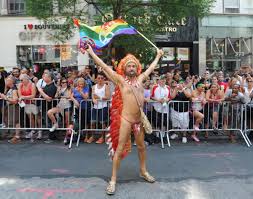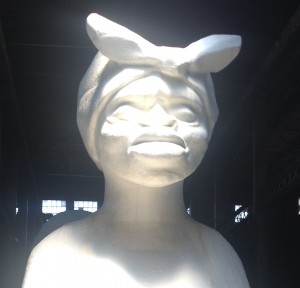Since returning from my eight week Moxie Project experience, I feel inspired, energized and ready to dismantle the white supremacist heteropatriarchy! This summer I’ve been equipped with the theoretical knowledge of systems of oppression, personal stories of those at the intersections of identity and the margins of our society, and the tools to effectively organize and counter the oppressor. While the summer left me with many moments of feeling hopelessly entangled in these larger systems of human oppression and suffering, it also revitalized my faith that a few committed individuals fighting for justice could change the status quo. With my new intersectional lens and revolutionary zeal, I feel ready for Duke this fall and for any obstacle that comes my way in life!
In my few weeks returning home, I’m starting to see EVERYTHING in a new way. I see how all issues in society are interrelated and connected to the larger system trying to keep us all down. I’ve become increasingly critical of everything I experience, participate in, and hear of, pointing out what’s problematic about this, what’s heteronormative about that, and what’s culturally/racially insensitive about EVERYTHING! From the White Savior Complex inherent in my church’s mission trips abroad to Iggy Azalea’s appropriation of the language of southern black women to mainstream white feminism’s co-option of the reproductive justice movement from women of color to the demise of public education and the extension of the school-to-prison pipeline, everything deserves close scrutiny and criticism.
One night, my mother and I were having a conversation about domestic abuse and the societal and cultural perceptions that perpetuate this form of violence. All of a sudden, my mother, who has had a personal experience successfully escaping an abusive relationship, became irrationally upset with our conversation.
“Well, since you know everything, we can just end this discussion!” she yelled.
I was taken aback. My mother felt like me saying that there wasn’t enough support for people trying to escape abuse was somehow an invalidation of her own success doing just that many years ago. She, too, was an immigrant single mother of two small children (one of whom had special needs) with very little family and financial support. She wasn’t sure what the point of my argument was if not to say that what she did must be impossible for any other woman to do. I honestly didn’t understand her anger. I wasn’t trying to invalidate her experience with my new found “knowledge” on intimate partner violence. And I also wasn’t trying to invalidate her experience by bringing up the “larger systems” that prevent other people from leaving their abusive relationships. What I thought was a two way conversation with my mom sharing lessons she had learned from lived experiences and me sharing what I had learned through my eight week Moxie experience, turned into a heated argument, which it shouldn’t have been, considering I agreed with everything my mother said and I was surprised that she didn’t see my point of view.
It was really frustrated to feel like I’d come back with all of this understanding, but that other people didn’t always seem to share my understanding. In my quest to over-analyze, critique, and label everything with the appropriate –ism, I had forgotten how to meet people where they were and truly listen in order to understand their experiences (not thinking about what I was going to say next that would challenge/destroy their way of thinking). I had become the dreaded academic feminist asshole.
A few weeks ago, one of my good friends sent me the article circulating around, entitled “Don’t Send Your Kid to the Ivy League.” She wanted to know what I thought of the piece. I responded with three paragraphs describing what I thought was wrong with elite universities and in particular, student culture at Duke University, stating that elite circles usually perpetuate elitism by bonding members through the constructed “struggle” of the elite and the intentional alienation of elites from less privileged groups. She didn’t respond right away. But a few days ago, she sent me 15 texts, describing a revelation she had about everything wrong with Duke culture, citing many of the same points I had shared with her.
It was an interesting moment for me – to see someone else be able to come to their own conclusions but knowing I had influenced them somehow by introducing them to a different way of thinking about a situation. Being introduced to different ways of thinking is what I enjoyed most about this summer. Between our Moxie reflections and excursions, my conversations with my co-workers at GGE, and even our introduction to transnational feminism at Af3irm’s school of summer activism, I’ve been introduced to so many different angles to approach questions in life that I’ve always grappled with. While I’m not sure how much closer I am to answering some of these questions, I know I am ever closer to understanding my role in this larger movement. The people I’ve gotten to know this summer in New York City through the Moxie Project were able to meet me where I was and lead me to a greater understanding of the feminist movement, myself, and who I want to be in life. Hopefully, as I continue to learn and grow in this understanding, I can learn to meet others where they are and also guide them through that same journey of self-discovery.
And I’ll try NOT to be an academic feminist asshole in the process.




